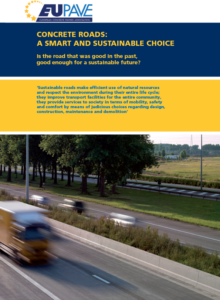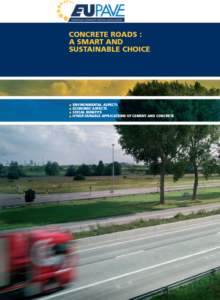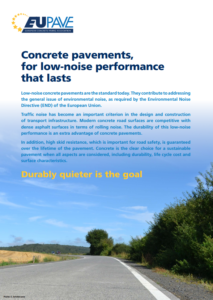-

Leaflet – Concrete Roads: a Smart and Sustainable Choice
A shortened version of EUPAVE’s publication “Concrete Roads: a Smart and Sustainable Choice” was published in the first month of 2010. The full publication’s little brother informs on the essential factors related to environment, society and economy and shows that the modern concrete road can be a sustainable solution.
-

Concrete Roads: a Smart and Sustainable Choice
In September 2009, EUPAVE released its first publication “Concrete Roads: a Smart and Sustainable Choice”. This brochure draws on international experience to show that the modern concrete road can be a sustainable solution for our society and that it satisfies the basic criteria for sustainable construction in respect of the environment, economy and society. The […]
-

Leaflet – Concrete pavements for low noise performance that lasts
Low-noise concrete pavements are the standard today. They contribute to addressing the general issue of environmental noise, as required by the Environmental Noise Directive (END) of the European Union. Traffic noise has become an important criterion in the design and construction of transport infrastructure. Modern concrete road surfaces are competitive with dense asphalt surfaces in terms of rolling noise. […]


